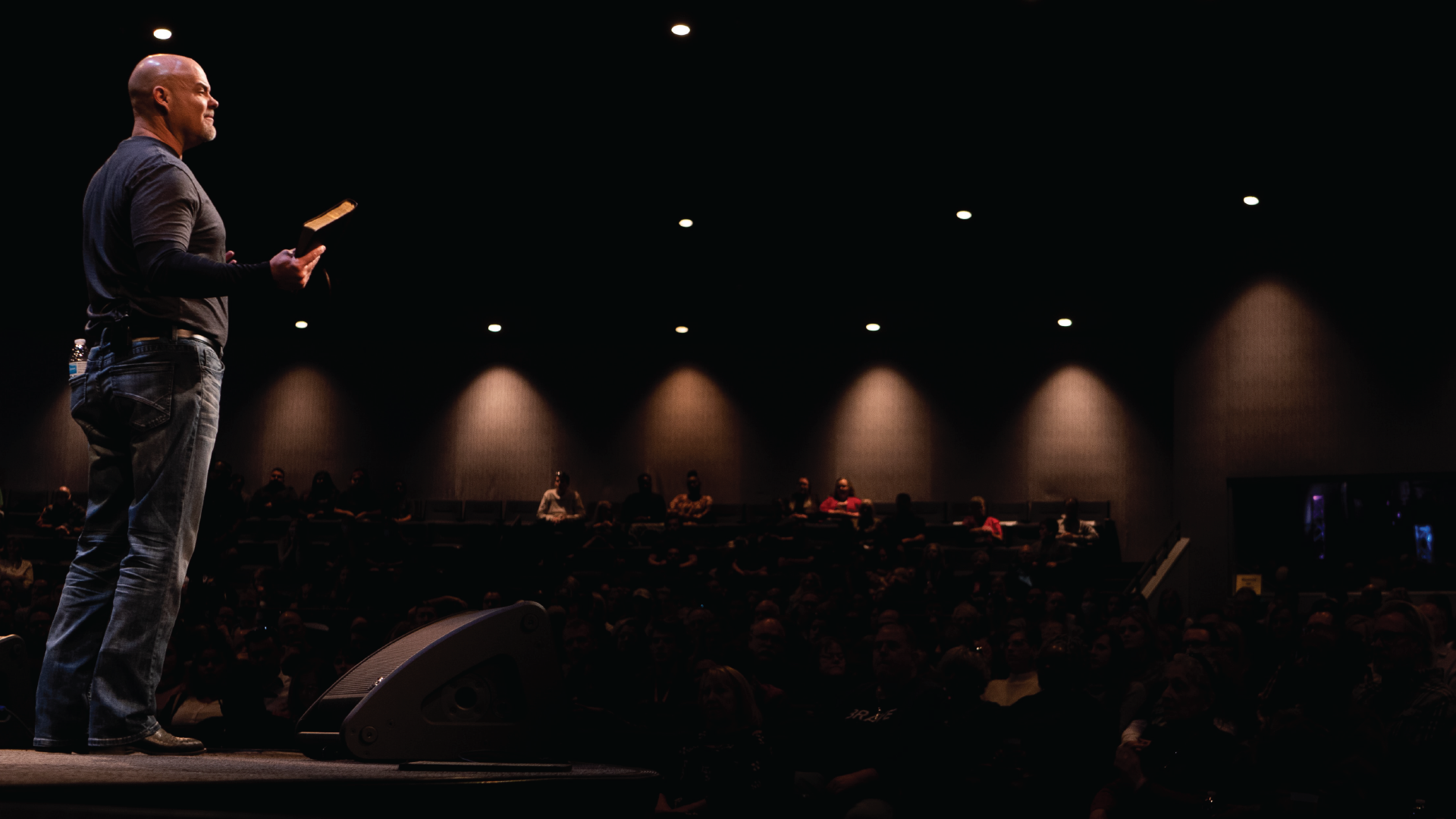Loving our Neighbors Better: A Pastor’s Story of Ministry Transition

Avery West
Membership Engagement Director
Read more from Avery
For years, pastor Ben Scott knew something wasn’t right with the food pantry at First Baptist Church. Volunteers dwindled and morale declined. “We just knew that we weren’t doing it well, but we weren’t really sure what to do. True Charity helped us find some of those answers,” he shared.
After watching a few True Charity Takeaways and previous Summit recordings, Ben felt convicted. As he learned about the concept of “toxic charity,” Ben remembers thinking, “This is who we are. We’re not giving them dignity, we’re not creating relationships, we’re not having any outcomes.”
Pastor Scott then sent these videos to staff and volunteers, asking them to think about making a change. He appreciated the opportunity to point to an outside source.
“I was able to say, ‘Hey, other people see these problems, and they are having success in this way.’ It was easier for me to take it to them because it wasn’t my brain child,” Ben said.
The small group that led the food pantry began to meet to discuss shifting away from the handout model of charity they had used for years. “As much as possible, we wanted this to be a group decision,” Ben emphasized. The staff and volunteers each took time to pray about the change individually, and then came together to talk—and went through this process a couple of times.
Pastor Scott reached out to the True Charity team, who was honored to walk alongside First Baptist as they considered a transition. “The Food Co-op Model Action Plan was critical for us,” Pastor Scott shared. “It helped us gain clarity on the direction we wanted to take with the co-op. That was information we could not have gained on our own.”
It was at this point, too, that Ben brought the larger church body in on the shift. At their regular Wednesday night Bible study, Pastor Scott asked for discernment as the leadership made a decision about how to better affirm the dignity of the people coming to First Baptist for food.
These prayer requests lead to individual conversations, and some of them became tense. People asked, “Shouldn’t we give without asking for anything in return?” and commented, “That doesn’t seem very loving.”
In his conversations with church members and food pantry staff alike, love was exactly what Ben tried to emphasize: “I had to remind people that we are doing this because we love people. This is to love our neighbors, and to love them well.”
Ultimately, he tried to see and affirm the good intentions behind these comments. “I know who you are,” he would say, “and I know that you want to give people dignity. I just think we can do that better.”
“That was the one thing I kept trying to tell them,” Ben shared, “We can do it better.”
The transition wasn’t completely smooth. Two volunteers were resistant to the change. One individual shifted her attention to other ministries, while the other individual’s family, for many reasons, made the decision to leave the church.
Following the steps in the Food Co-op MAP, Ben knew it was essential to bring the community they serve in on the conversation about change. One night during the pantry’s open hours, Ben stood at the door and handed out a questionnaire, explaining that they were thinking of making a change. The survey asked questions about food preferences, willingness to contribute a few dollars every month, and what the individual liked and disliked about the food pantry.
The staff themselves were shocked at the responses. The vast majority of people wanted more fellowship time together, more variety of foods, and were willing to spend a little bit of money. “We thought we could do better, but after that survey, we knew we could,” Ben said.
The next month, the staff had a group conversation with everyone who came to the pantry. “We just explained that we felt like we could serve them in a better way,” Ben remembers. They shared the results of the survey, explaining, “Here is what you said you wanted, and switching to a co-op is a way we could do those things.”
At the next month’s pantry meeting, everyone went home with a copy of guidelines to sign and bring back, along with a five dollar registration fee. That extra bit of money made it possible for church staff to buy food for the co-op outright, rather than depending on (and abiding by the restrictions of) the local food bank. Church members have also given generously to the new food co-op, with one local farmer donating fresh meat each month.
Now, co-op members meet each month, contributing five dollars for the next month’s groceries, helping sort food, and spending quality time with one another before heading home.
Change is never easy, especially when volunteers and clients have become used to one kind of ministry through the years. However, First Baptist Church of Cherokee transitioned with grace, and any ministry considering a shift can learn three things from their experience:
- Cover the entire endeavor with prayer
- Communicate openly and lovingly with staff
- Bring clients in on the conversation
After making the switch, Pastor Ben can feel a difference in the room, especially when it comes to the men. When the ministry operated as a food pantry, men would often avoid coming in, or look ashamed if they did. Now, Pastor Ben sees men hopping out of their chairs to move heavy boxes, excited to help. Ben shares, “I can tell they feel happy, useful, and important.”
Pastor Scott is confident the change was worth it. First Baptist Church of Cherokee always loved their neighbors—and now, they do it even better.
 The True Charity team is here to come alongside you as you develop your programs. Whether you are ready to make a change, or just interested in learning more, you can begin by reaching out to info@truecharity.us. True Charity Network members have access to resources for developing a successful food co-op, including a detailed model action plan, operational documents, and personalized training.
The True Charity team is here to come alongside you as you develop your programs. Whether you are ready to make a change, or just interested in learning more, you can begin by reaching out to info@truecharity.us. True Charity Network members have access to resources for developing a successful food co-op, including a detailed model action plan, operational documents, and personalized training.


